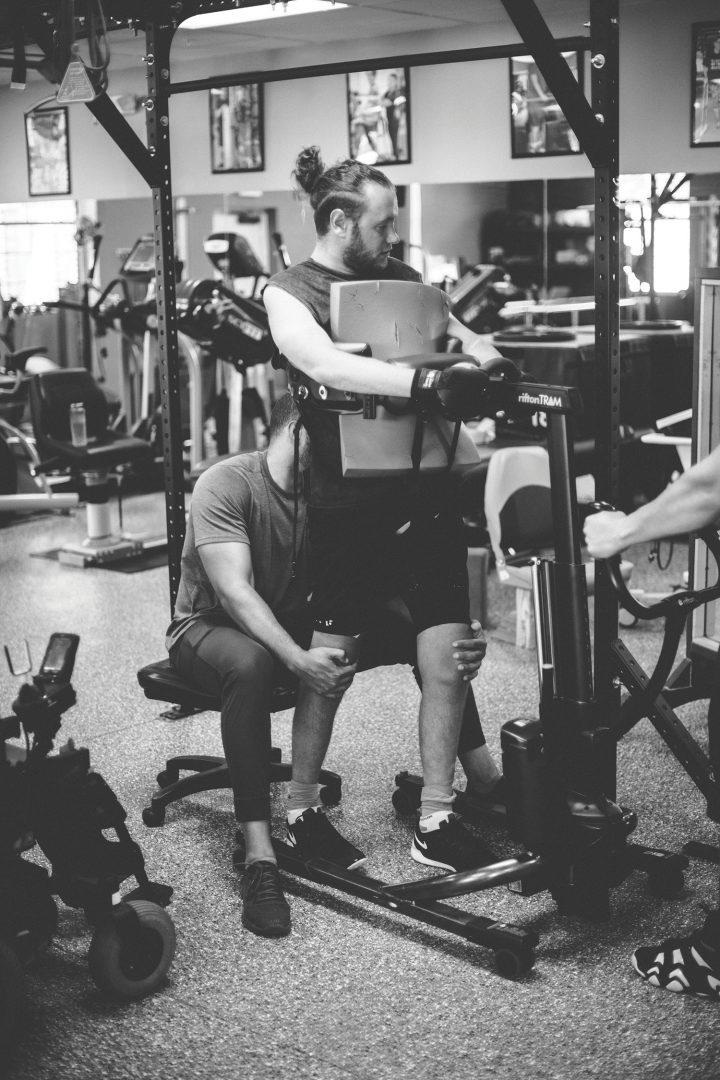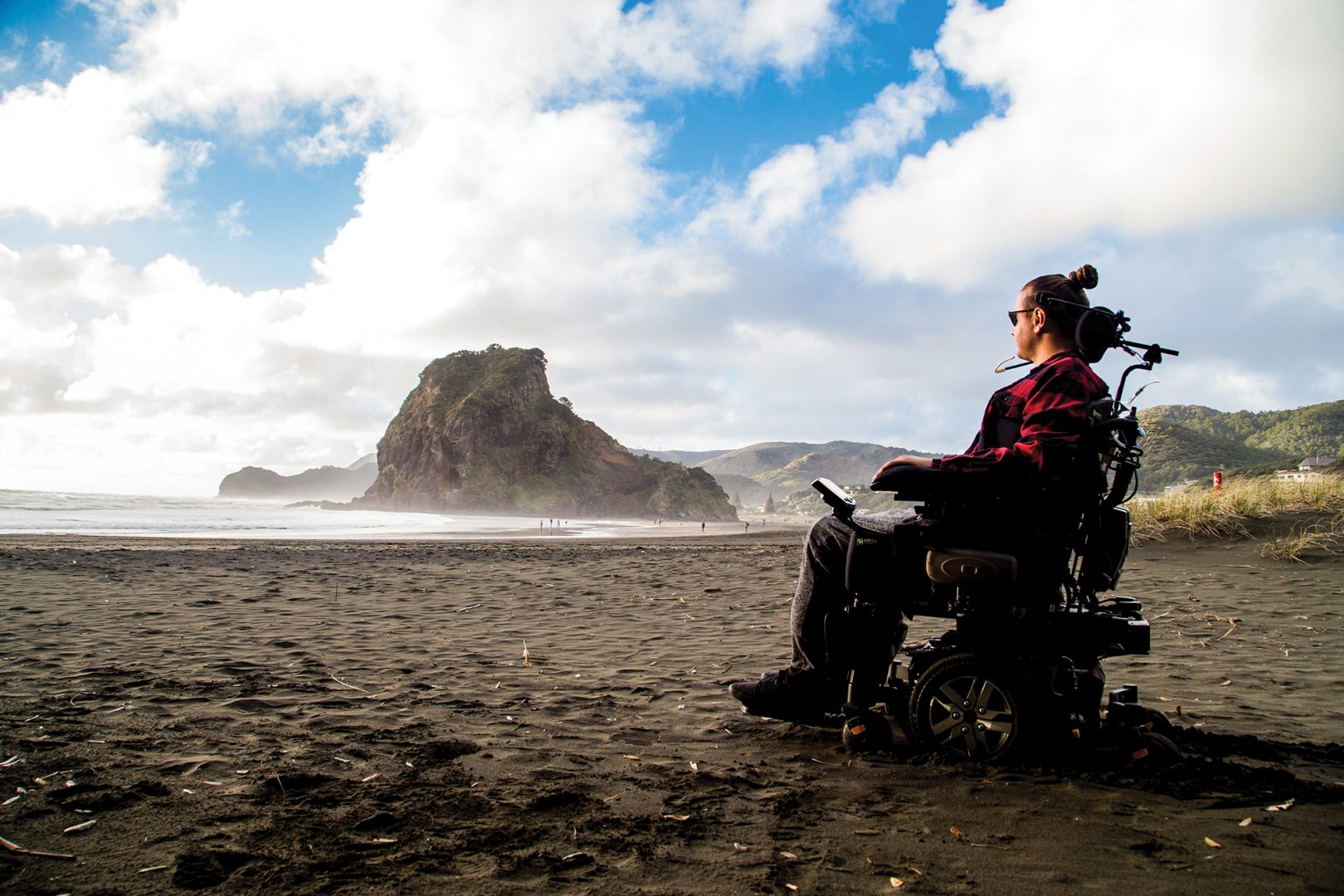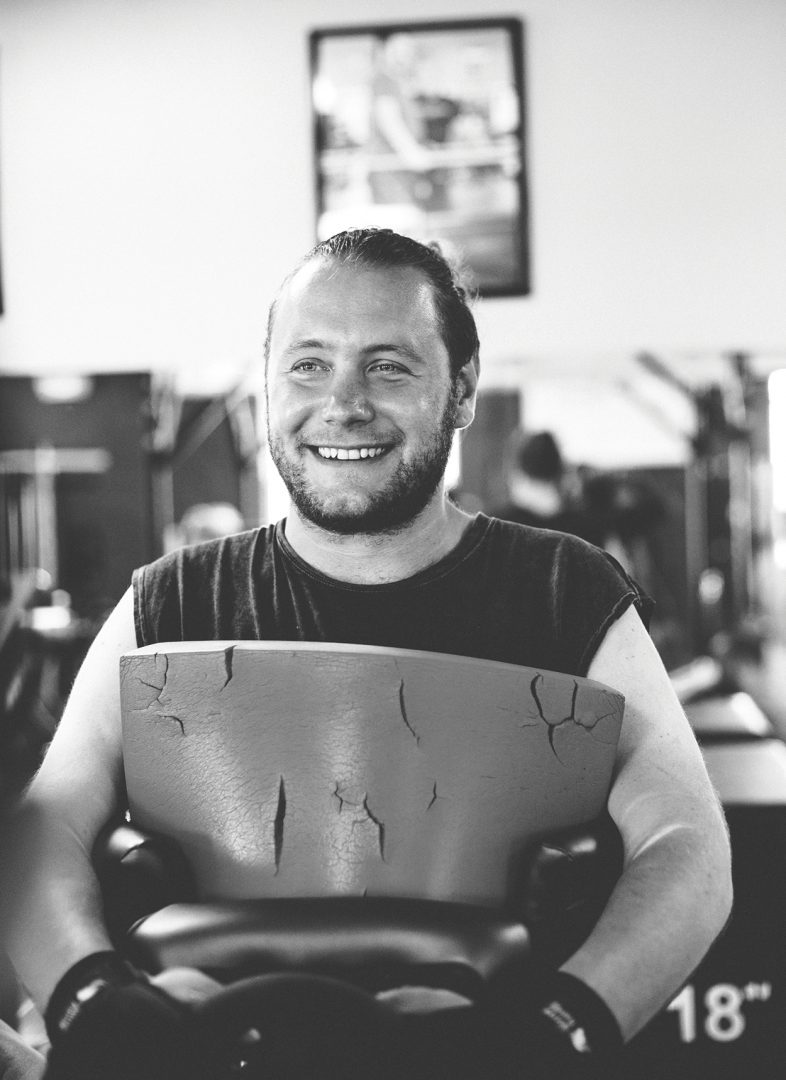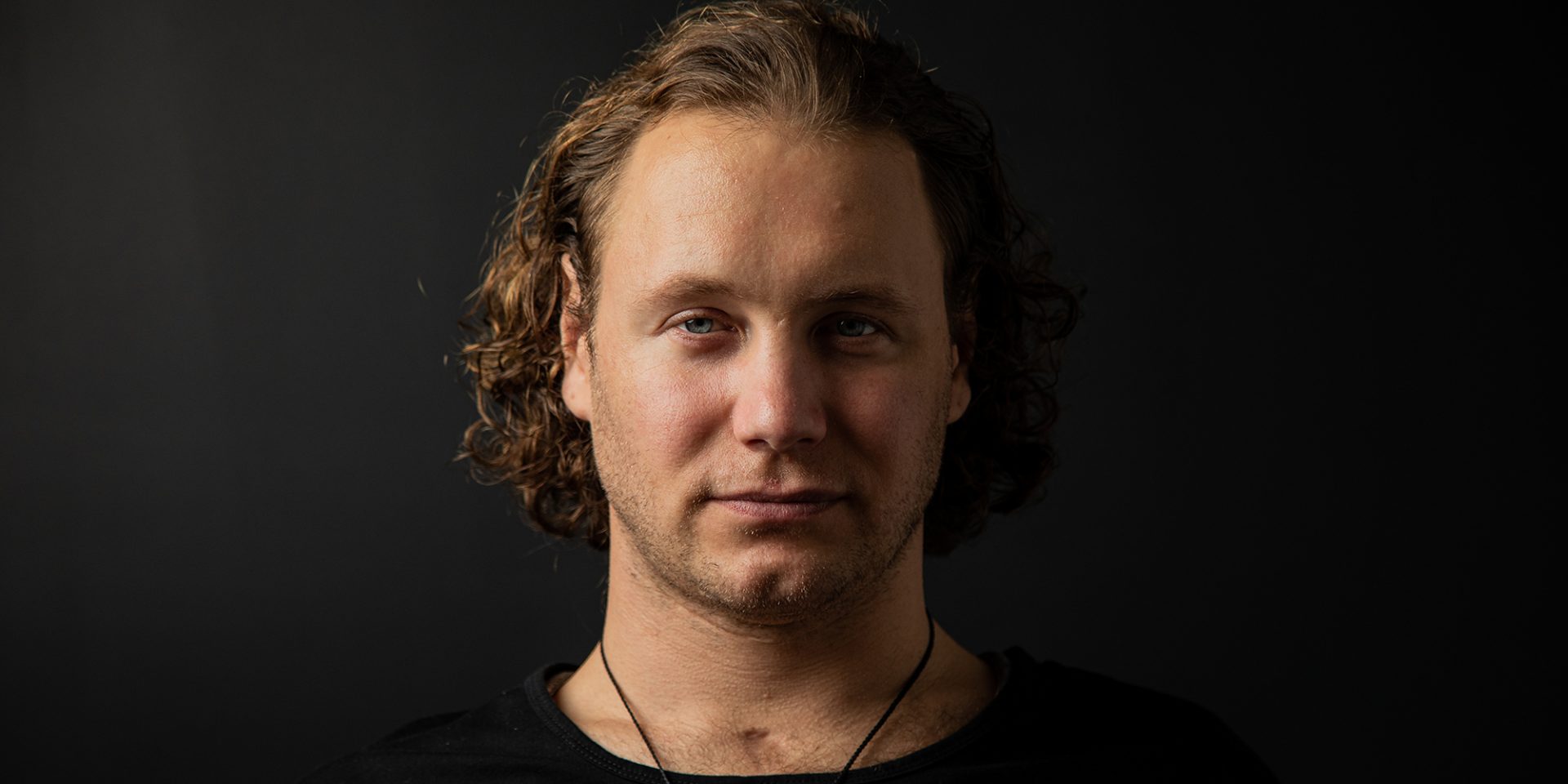In The Wake Of Adversity
Top Image: Brick Content
Determination is a strange and wonderful reflex in the face of adversity. After sustaining any type of injury, the mind and body goes into overdrive. Fight or flight. Wake or sleep. Be determined, or be weak. Professional wakeboarder, Brad Smeele is the definition of determination. In 2014, he experienced a severe wakeboarding accident which affected his spinal cord, paralyzing him from his shoulders down.
Many others would have crumbled physically and mentally after this, but not Brad. He is now an amazing inspirational speaker who travels around New Zealand giving messages of hope and determination as he aims to bring attention to and support research around spinal cord injury through his self-founded, The Movement Collaborative.
Last month, Brad talked at this years Men’s Health Breakfast with two other inspirational speakers, Dwayne Whitney and Ben Edusei to launch Men’s Health Month this June. Men’s Health Month puts the spotlight on men through the telling of real-life stories, with the aim of inspiring other men to make changes to their lifestyle to improve their health. We got the opportunity to talk with Brad a week before his appearance at the breakfast and chatted about his journey and his wonderful charity that will better the lives of hundreds of spinal cord injury sufferers.

How would you define determination?
It’s the ‘never give up’ attitude. Basically, if you’ve got a goal and something you’ve set your sights on, it’s not letting anything get in the way of that. Pushing through, no matter what.
How did you first get into wakeboarding?
My mum was one of New Zealand’s top water skiers. So, as a family, we were all into it and went on family holidays and little things like that. One time, some friends brought along a wakeboard and I got to try it out and then I was hooked. I never wanted to waterski again.
It was immediately something I found that I could progress at. I wasn’t something I was fantastic at from the beginning, but it was something I could definitely connect with. It’s a freestyle sport, and there aren’t any rules – nothing to restrict you. Just do what feels good to you.
In a way, you can put your own personality into your riding. After a while, I found out that there was the potential to travel the world and make a career out of it.
How did the spinal cord injury you suffered in 2014 affect you physically and mentally?
We were actually filming for a wakeboard movie, and it was the “last opportunity” to land the last best tricks for the film. I was just pushing myself pretty hard and had an unfortunate moment where I backed out of the trick at the wrong moment.
I think everyone is susceptible to having lot of challenges thrown at us. Everyone has their different little struggles they go through. It was an unfortunate thing to happen and it took me a while to come to terms with it. After actually accepting that it happened, that kind of set me free from being depressed and being upset about it and constantly looking back.

How do you tackle recovery from the injury day-to-day?
Initially, I thought ‘yeah, I’m going to recover fully and walk again.’ It was tough and after a while, I just had to accept reality. But it took a long time too. Maybe I wasn’t going to be able to push myself? Recovery; I just had to change what that meant to me.
People were raising money and getting behind it. From that, I was able to get to the point where I was able to have a happy life again. I could handle situations better and wrap my head around the fact that things were different. I can either sit around or be miserable about it or accept it and move forward.
I’ve made the recovery, in terms of being able to live a happy life. I’m writing a book and filming a documentary and trying some freediving, because I can hold my breath for a really long time underwater. Recovery to me means just getting back into everyday life, no matter the situation.
What’s your book about?
I’ve been working on it through my recovery as soon as I was able to hold a mouse-stick in my mouth. Early on, I started writing a little bit and about six to eight months through I was approached by a publishing press who suggested I write a biography. They offered ghost writers or people to help me write it. I told them that yes, I’d like to do it, but I’d like to do it on my own.
I want it to be mine that I conquered and want to do myself. I’m looking to having my writing finished by the end of the year and have the finish book out by 2020.
What advice do you give to people who have been through similar experiences?
A lot of struggle is mental, not physical. For most people it’s just digging deep and working out what they’re really going through. A lot of people think emotions are bad and I feel all emotions are there for a reason. When they come up, you need to address them and let them run their course, really feel what is dragging.
Learning about ourselves by ourselves and how we operate really helps. It means that next time an issue crops up, we’re better to deal with it. Say I’m on social media and see my mates wakeboarding and I’m feeling a bit low, I know how to optimize on that. I know I can’t change my situation now, but I can change it tomorrow by being positive and taking steps to improve.
I saw a quote the other day: “No amount of regretting can change the past and no amount of worrying can change the future.” For anyone who’s gone through an injury, it’s about reaching for help when you need it.
I did feel like a burden at times, I’m not going to lie. But my friends and family are still there. I know that they’ll always help. It’s figuring out those mental battles and working through them.
We are who we are. We need to own our identity. We can’t be someone else. It’s important to own our situation.
How much do you credit personal determination to your recovery?
Obviously, with the surgeries at the very start, the doctors helped me through the ICU stage. They obviously have their opinions and training, and they know a lot, but they certainly don’t know everything. When they told me that I probably won’t be able to walk again, I was like ‘well, you don’t know me and my determination. You don’t know how I will get to where I want to go’.
All the people in rehab and physio were really, really great, just helping me keep my body healthy. In order to be happy again, I just needed to go into maintenance mode.
If research comes around and there’s a cure available, I’m going to go for it. By ‘cure’, I don’t mean that all of a sudden I’m going to jump out of my chair and run a marathon. I’m just excited about the future.

Can you talk to us about The Movement Collaborative?
Through looking at research, I noticed that there was a separation between all the different researchers and the projects. It was like they were all trying to do it themselves and it frustrated me.
The Movement Collaborative is trying to bring that research together in labs. We have one at University of Auckland. We are working on something that will hopefully break down the scar tissue in injury and use stem cells. It’s sort’ve like working with a landslide blocking a highway.
It also looks at the person, as well as the injury. There is some amazing stuff with electrical stimulation implants that are going on too. A whole bunch of angles can be taken through the clinical trial process for what are going to be the best cures possible.
Our finish line is understanding the timelines regarding skin and stem cells. If we then look at how much each of them will cost, and how much funding we need, we’re sorted. Even if we have to spend $300 million, we’ve got the target.
Everyone who’s passionate about spinal cord injury can work towards that recovery. It’s a connecting web that brings the community together towards the main goal: to help.
You spoke at a Men’s Health Breakfast last month. What were you talking about?
It was an early start, getting to the place, but I like speaking because it means that I can scream what I’ve learnt.
I’ve learned so much through this injury that I have to pass it on. Hopefully other people can battle easier from what they’ve learnt from me.
What’s the best piece of advice you’ve been given?
I always hated the word ‘acceptance’. People were always saying that I had to accept this, but I just didn’t want to. What I was told that by accepting this, I wasn’t accepting that I’ll be in this position for the rest of my life, I’m accepting that this is where I am now.
This is my starting point and this is where I move forward. It really comes down to accepting who you are and having faith in the process. It was something I resisted, but now I tend to have a really religious outlook on that, and I’m not a religious guy.
I had a lot of people saying that “It was all in God’s plan” and I thought that if God planned this for me, he’s kind of a dick. Having faith is just knowing that no matter what happens, you need to remember that everything’s going to be okay in the journey.

